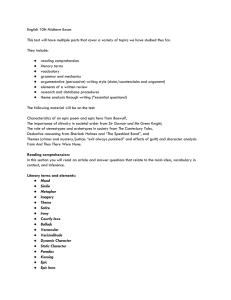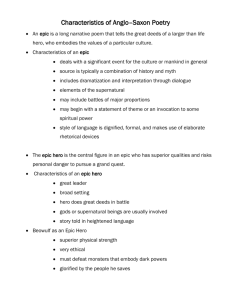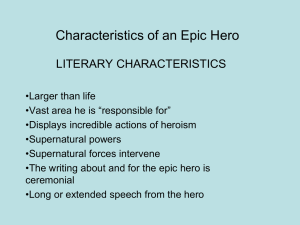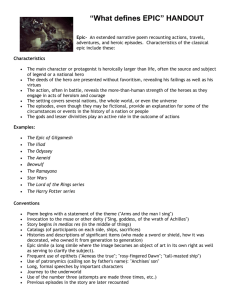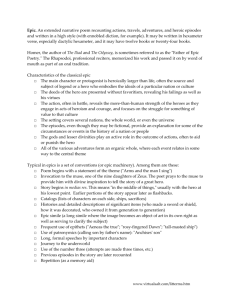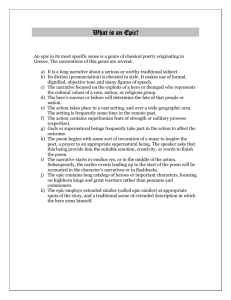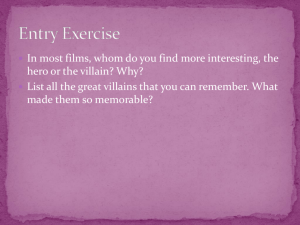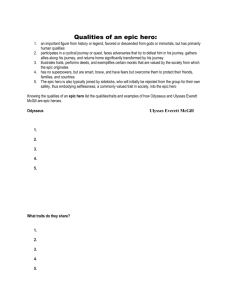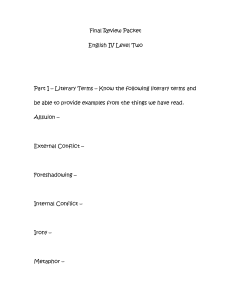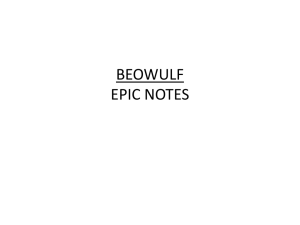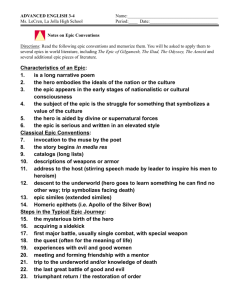Literary Terms & Epics Notes
advertisement
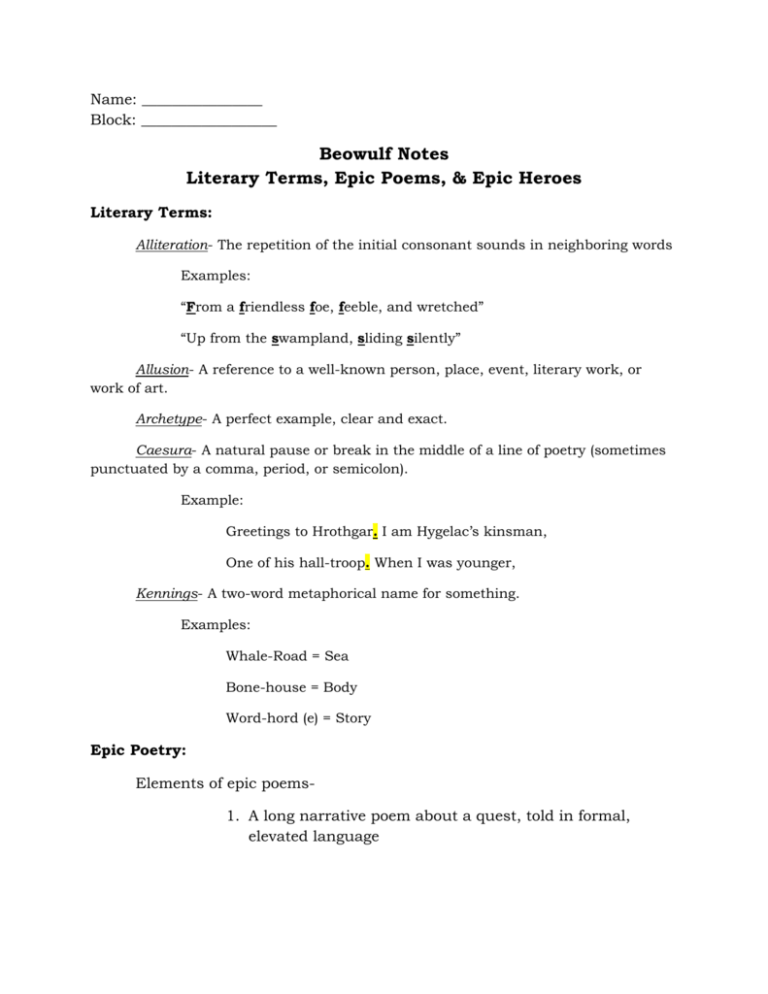
Name: ________________ Block: __________________ Beowulf Notes Literary Terms, Epic Poems, & Epic Heroes Literary Terms: Alliteration- The repetition of the initial consonant sounds in neighboring words Examples: “From a friendless foe, feeble, and wretched” “Up from the swampland, sliding silently” Allusion- A reference to a well-known person, place, event, literary work, or work of art. Archetype- A perfect example, clear and exact. Caesura- A natural pause or break in the middle of a line of poetry (sometimes punctuated by a comma, period, or semicolon). Example: Greetings to Hrothgar. I am Hygelac’s kinsman, One of his hall-troop. When I was younger, Kennings- A two-word metaphorical name for something. Examples: Whale-Road = Sea Bone-house = Body Word-hord (e) = Story Epic Poetry: Elements of epic poems1. A long narrative poem about a quest, told in formal, elevated language 2. Includes elements of myth, legend, folk-tale, and history 3. Epic-hero: a character with a trait that is valued by his society; in Anglo-Saxon society he seeks immortality through fame. 4. Quest- A journey through which the protagonist learns (and possible earns) something 5. Valorous Deeds- These brave deeds often follow long, formal speeches about the hero’s previous super-human deeds. 6. Divine Intervention- The hand of God (or gods) that helps the hero, proving his value. 7. Great Events- The hero has a hand in something important in the history or mythology of a culture; often, the fate of a nation rests on his shoulders. The Epic Hero Archetype: An epic hero is… 1. Strong: Excels in skill, strength and courage. 2. Ethical: Values honor and glory. They have a strong moral code that they follow. 3. Quest: Usually trying to achieve a goal (almost always achieves it). Meets many monsters and temptations along the way. Often accepts challenges and invites problems. 4. Glorified: Succeeds in war and adventures. Is known for their heroic deeds.
